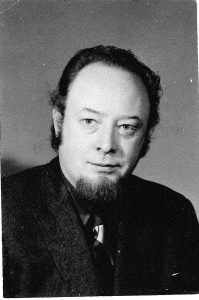
Remembering Jack McLeod (1932 – 2016)
September 26, 2016
On Thursday, September 22nd 2016, Political Science Professor Emeritus Jack McLeod passed away peacefully in his 84th year of a full and well-lived life, surrounded by his family.
He earned a B.A. and M.A. in economics at the University of Saskatchewan before embarking on a Ph.D. in political science at the University of Toronto which included a year’s fellowship at the London School of Economics. He taught at the University of Toronto from 1959 – 1996 and after retirement, a course on Politics and the Media for senior students. An experience in Budapest during the Hungarian Revolution in 1956 began his career in political journalism. Articles appeared in The Globe and Mail, The Toronto Star, Saturday Night, Maclean’s, Canadian Forum, Books in Canada and the Journal of Canadian Studies.
He was often a political commentator on CBC television and on radio. McLeod published academic works with the University of Toronto Press, Oxford University Press and McLelland and Stewart as well as two political science textbooks. He also co-edited two books of political anecdotes with his wife Cynthia Smith for Oxford University Press. Aside from writing, he served on the board of the Toronto General Hospital from 1971-1978.
Writing fiction under the pseudonym of Jack MacLeod, he published three comic novels, two of which were best sellers and two were shortlisted for the Stephen Leacock Prize: Zinger and Me, Going Grand and Uproar. His commonplace book Reflections in My Wintertime was published (2015) by David Mason Books. A fourth novel, To Build a Better World will be released posthumously at the end of 2016.
Below is an excerpt from a review by Michelle Walker published on-line (Open Book Toronto) after the release of his last novel in 2009:
‘For a very serious Professor in Political Science, Jack MacLeod is a very funny man. We readers are lucky that Jack put in the ten hard years of writing it took to complete his novel ‘Uproar’. The parts that are fiction are very, very funny. And the parts that are fiction built up around the skeleton of fact are fascinating: a window on the real-life, almost-gone days of the smoke-drenched tweedy Toronto writers/academics of P.O.E.T.S. (read the book to see what that stands for!) meeting at Dooley’s for martinis or beers and to bat around matters of importance or ideological flirtation. His characters’ discussion of Marshall McLuhan’s ideas shimmer…..’
He had a marvellous sense of humour, a lively personality, was practical and calm and above all, possessed a generous spirit of friendship.